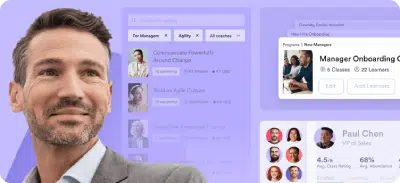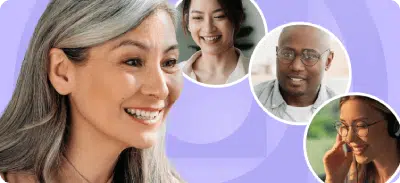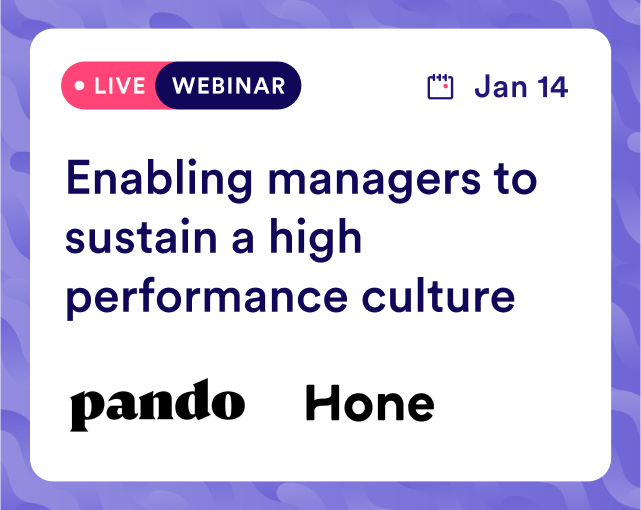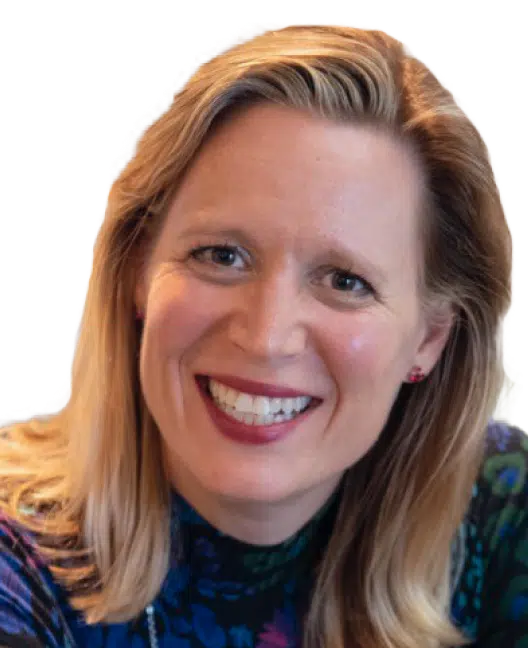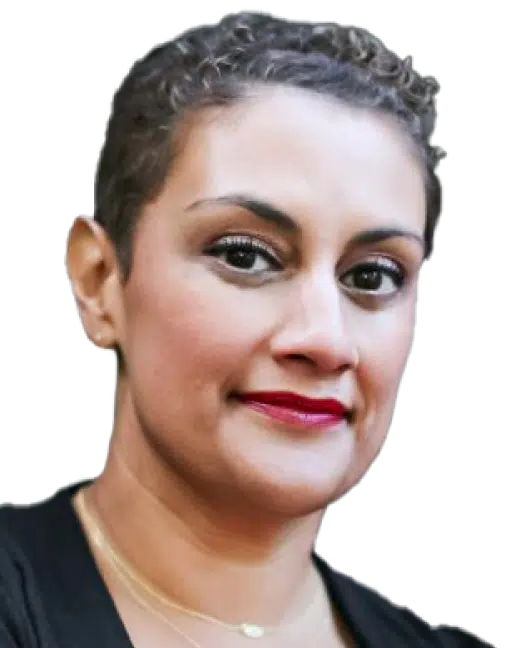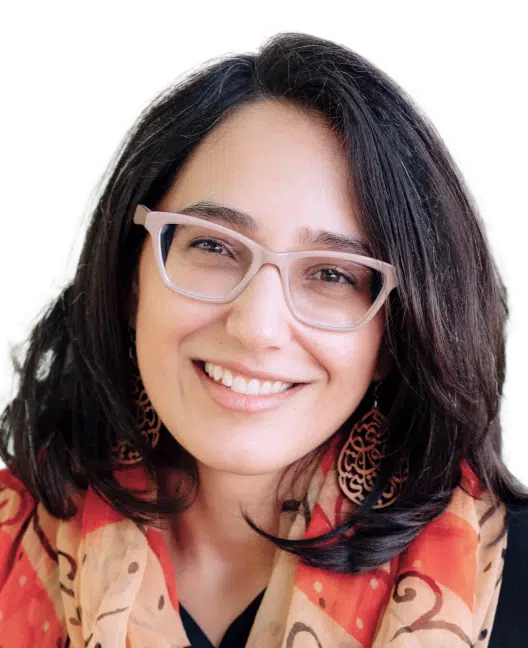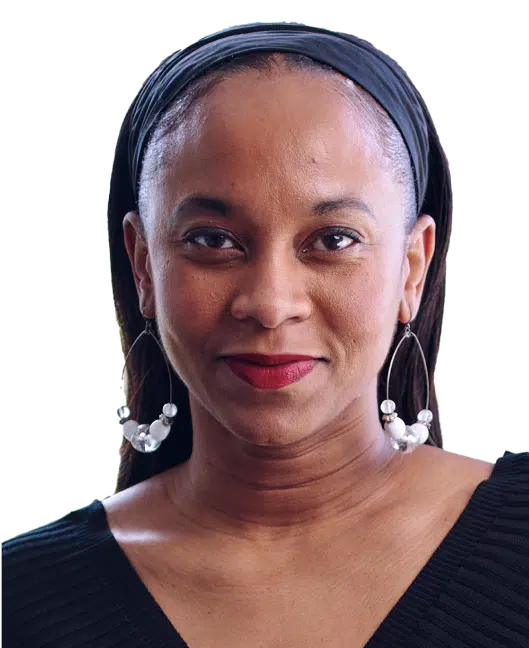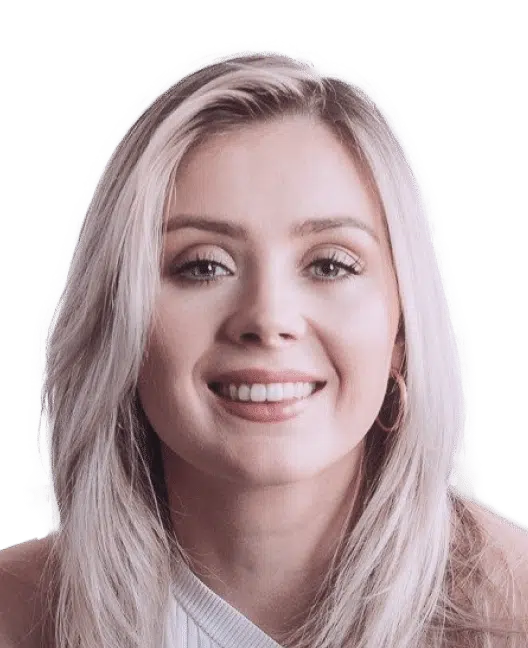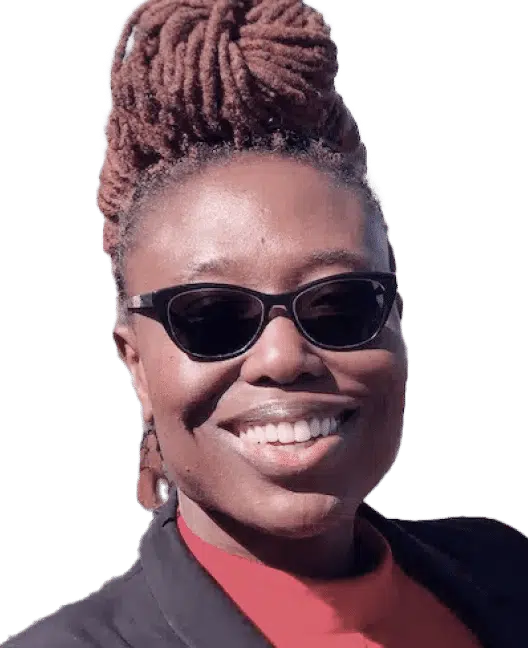- Platform
The All-in-one Employee Development Platform NEW
Hone’s platform helps HR and L&D leaders level up the whole team at scale with interactive, engaging live training
- Why Hone?
When Self-Paced eLearning Isn’t Enough
After teaching hundreds of thousands of learners, we’re sharing the secrets behind our world-class training methodology that produces real outcomes.
- Resources
While 65% of employees want more feedback, only 40% of managers feel confident having performance conversations. Join Hone & Pando for an insightful session on transforming your performance management approach through effective manager enablement.
Coach spotlight
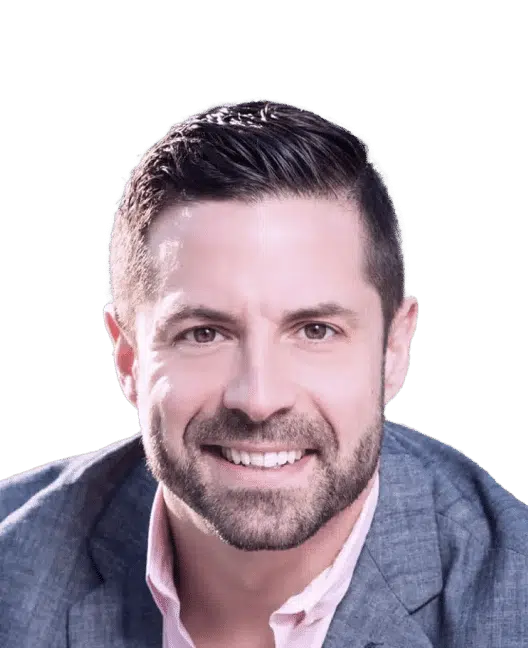
Louis
Alloro
Louis Alloro, M.Ed., MAPP is a change-agent, one of the first hundred people in the world to earn a Master of Applied Positive Psychology degree from the University of Pennsylvania and has been working as a social entrepreneur in this space since 2007. He is a senior fellow at the Center for the Advancement of Wellbeing, co-founder of The Flourishing Center’s Certificate in Applied Positive Psychology (CAPP) program and co-founder of the Change Lab, a place for change-agents to become more empowered and effective.
He consults in learning organizations to optimize culture, wellbeing, engagement, and performance by using scientifically informed tools and strategies. He is currently pursuing his PhD in systems informed positive psychology and social impact evaluation.
Meet
Louis
Even when he was young, Louis always knew he wanted to be a teacher. Getting to combine his love of teaching and his passion for applied positive psychology has been a dream, says Louis. Interestingly enough, Louis is one of the first hundred people in the world to earn a Master of Applied Positive Psychology degree from the University of Pennsylvania which he has been teaching since 2008.
But what is positive psychology? “It’s the science of human wellbeing and flourishing,” explains Louis. “It involves a lot of different pieces but ultimately it’s about feeling and functioning effectively-mentally, emotionally, physically, professionally, etc.”

To help teach more people the benefits of positive psychology and help increase their own well-being, Louis now offers certification programs through The Wellbeing Lab and The Change Lab, where change-agents become more empowered and effective leaders in their workplace, school or community.
In addition to teaching and coaching, Louis loves painting, cooking, and getting in physical fitness any way he can. He’s a big fan of a good dance party or daytime rave!
We chatted with Louis about his love of teaching, how he thinks positive psychology can help change the world of work, and more. Here’s what he had to say:
What trends do you see in the world of work?
We need to normalize struggle as part of thriving. I study well-being, but it’s not about being “all well, all the time”. It’s about learning how to struggle well through the inevitable ebbs and flows of life. . This year has really pushed people to their limits and many are struggling. I think we’ll see an increase in the types of support services, the training, and the coaching that businesses offer to help people learn these skill sets. After all, these are not skills that we are born with, but are learnable. The tools, strategies and skills I teach do not take away someone’s hardship, but help someone to feel strong and empowered to navigate whatever life throws their way.
Like many people this year, I’ve been wondering about the next normal. Things will never be the way they were before; but what will they look like on the other side of all this? For instance, will the traditional offsite meeting, when teams would come together to strengthen their bonds, strategize, and brainstorm together, now become the occasional onsite meeting? In the past, companies would hire coaches to facilitate those deep thinking strategy sessions offsite, but in the future, I think this deep thinking might actually happen when teams meet occasionally onsite, meaning the rest of their work would be remote.
A lot of my work in the past few months has been helping remote teams learn to pivot and find new ways of working together in this environment. I think remote work is here to stay.
How did you get your start in teaching?
Ever since I was a little kid, I always wanted to be a teacher. Whenever someone asked me “What do you want to be when you grow up?,” I knew I wanted to teach.
I followed my dream the traditional way and became a high school English teacher right out of college. Only, I hated teaching high school English. I picked the subject because I was good at it, not because I had a deep, ravenous passion for The Canterbury Tales.
However, I did have a deep, ravenous passion for human development and what was called “self-help” at the time. Self-help was the section of the bookstore that was all the way upstairs in the back. That’s where you’d find me reading life philosophies and Dale Carnegie kinds of things - even as a teenager. I’d always been interested in my own leadership development, I had just never put two and two together – that I could be a leader or trainer in leadership development.
I moved into teaching adults on training and development and I love my work. I get to do what I love doing, which is studying positive psychology, the science of human well-being and flourishing, and finding ways to help others learn new skills and strategies .
I particularly love helping teams build psychological safety and capacity capability for innovation and positive change, which is at the heart of my field. Teaching what I love teaching helps me become a better teacher. I just wasn’t a good English teacher, let’s leave it at that!
Why are you passionate about leadership development?
Because we’re all leaders. My friend Eleanor, a master coach and who taught me a lot of what I know about coaching, always says, “Executives are people too.” We’re all people. We’re all leaders.
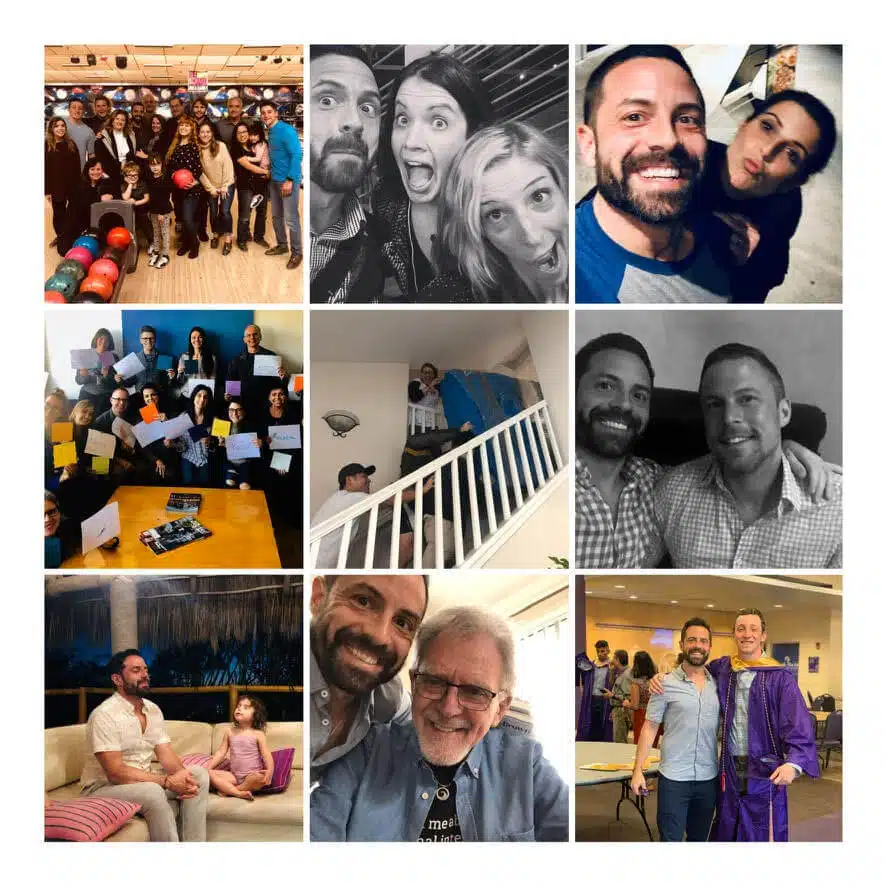
Another one of my mentors, Meg Wheatley, is the author of a book called “Who Do We Choose To Be? Facing Reality, Claiming Leadership, Restoring Sanity.” In it, she talks about building islands of sanity in the midst of chaos. This year is a great example of where we can all be leaders. I can be a leader in my own life, at home, in my neighborhood, or in my professional life.
Leadership development to me is both a personal and professional journey. Done positively, the ripple effect is amazing.
What is one actionable takeaway you want your students to leave your class with?
I want my students to remember that making mindful choices to increase well-being is a strategy for success. It’s a process, not a once and done and there isn’t a prescription. There’s no list of “The top 5 things you need to do to increase our well-being.”
It doesn’t work that way, but we live in a world that does want it to work that way. People want to be told what they need to do, but the reality is, it’s not something you can throw on your to-do list. It’s a way of being in the world that takes practice.
We are always changing in a world that is always changing. That’s complex! Complexity is really fascinating because there is no one solution to a complex situation. There’s no one-size-fits-all approach. A question I even like to ask myself is, “What’s the next right step on my learning journey?”
What’s your favorite part of working at Hone?
It’s been wonderful being a content creator and coach for Hone over the past year and a half. It’s great being part of something coming more and more alive. The team is so supportive and fun.
I love that Hone empowers people to own their learning journey. You get to choose your next step by deciding which class to take next. Autonomy is such a great marker of human motivation.
The group learning aspect of Hone also speaks to my heart. Humans are social creatures and we need each other for reflection and support. I love that Hone gives us a platform to come together and learn with each other. Everyone has something to contribute.
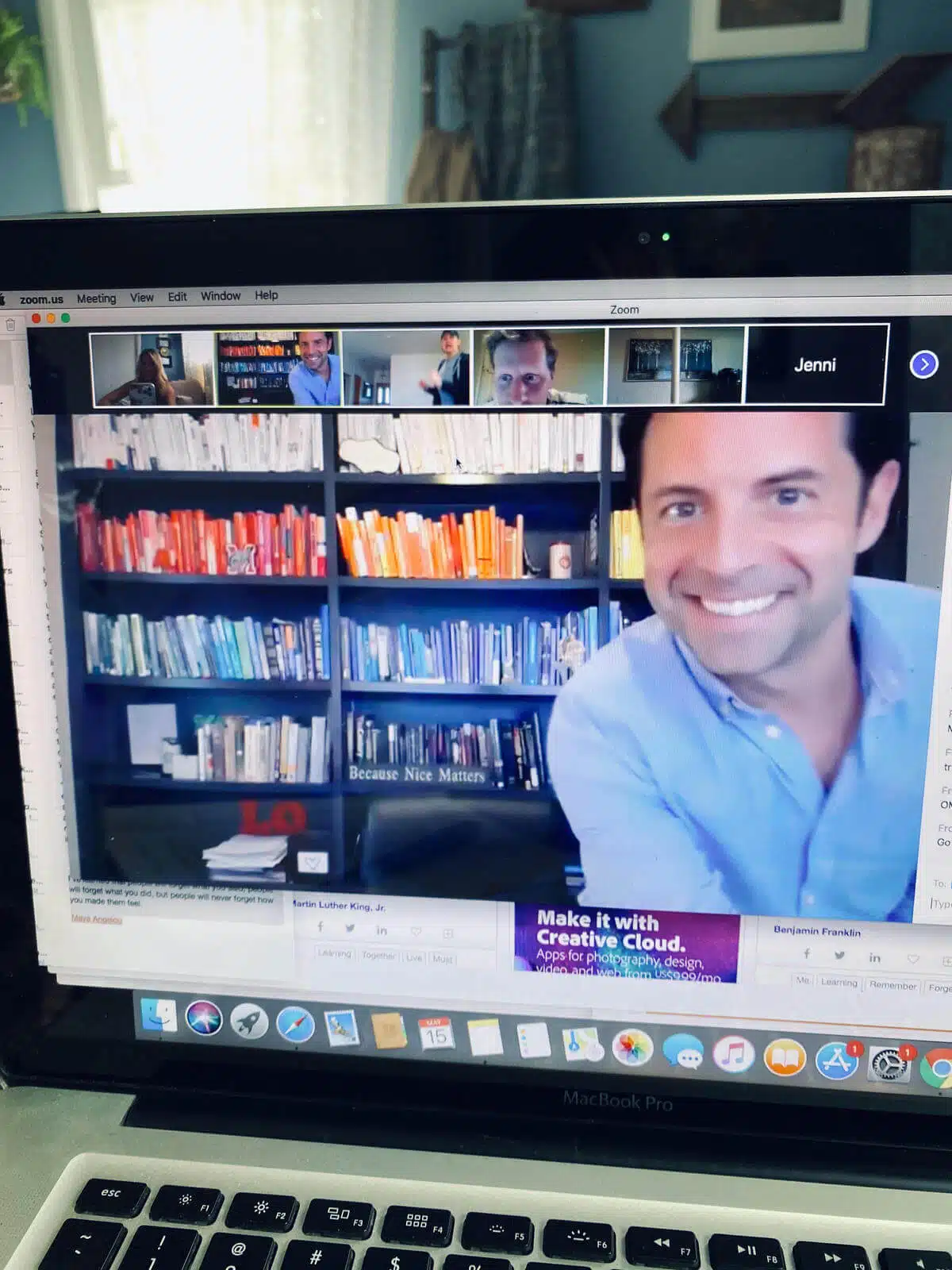
What is the best lesson you’ve ever been taught?
It’s okay to change your mind.
My brother died of suicide when I was 12. From this moment, my parents always reminded us that if you’re not happy, you can make a change.
That ties back to the idea that we and the world are always changing. Dynamism! We need to be flexible and agile, which learning positive psychology has taught me. It’s not about being all positive all the time, it’s about learning to be flexible and agile which impacts how I see the world. It’s also helped change my perspective. Even if we don’t know what that lesson is right away, we can still be curious and open to discovery, which is what learning is about.
Even in horrific circumstances, there’s an opportunity to find the gifts. Things don’t happen to us, they happen for us.
Who is someone who inspires you?
Generally speaking, underdogs inspire me. Those who make it against all odds. Seeing someone grow and change is so empowering. Any underdog story inspires me, helps me recall how far I’ve come, and reminds me that my journey is far from over.
I was in Philadelphia the night the Eagles won the Superbowl in 2018. I know this is a strange example, but the Eagles were the team that forever lost. I think people can relate to that. Once the underdogs - and then the champions.
That contrast between the lows and the highs is what life is all about.
What do you like to do outside of work?
I love to play in my garden and paint. Since quarantine started, I’ve begun leaving my paints and canvases out, so it’s less of an occasional event. I try to paint whenever I’m feeling moved to be creative. Even if it’s one stroke or two at a time.
I also love to cook, and see it also as a creative endeavor. I don’t love following recipes. Creativity comes not from the ingredients but in the combination of ingredients. I like to follow my instincts and play around.
What’s something your learners and colleagues probably don’t know about you?
I played the trombone from fourth to twelfth grade. I really loved participating in music. I felt at home in that world and had some great teachers, mentors, and friends in that space. I actually hadn’t played since I was 18 until about five years ago. My teacher was retiring so I went back for a final concert. And, it all came back to me, which was so strange. I activated the part of my brain that remembered the language of music, so that feeling was incredible after twenty years of not playing.
Your teams will love us
Our global team of instructors and coaches are experts in their fields, including leadership and management, DE&I, change management, conflict management, and more.
I loved the small group in this class and doing the breakout room exercises as a full group with the coach present.
It really helped to solidify the learnings to have the moderator talk through the “breakout” room and ask questions while in process.
Our session was very well planned and executed.
The session was very interactive and the conversations valuable.
I always wish the classes were longer!
My coach was a great instructor and she fit a lot of material in a short amount of time.
As an HR leader who is continually introducing change, I have been exhausted by the amount of resistance that I’ve been up against.
The coach was wonderful! Very friendly, vulnerable, and welcoming. The session went by lightning fast.
I wish the class had been longer than an hour!
But the hour gave me an opportunity to understand how to frame my current work in terms of an objective and key results that matter and how to plan actions to achieve the objective.
We had a dynamic, engaging, and thoughtful review of how we can embrace one another’s humanity in the workplace.
As my coach said, it’s critical that we place people at the center of the workplace. This class was an exercise in how we can sustainably approach this critical work.
The class was very informative and well-facilitated.
I appreciate being able to participate in break-out rooms which fostered excellent conversations and ideas.
This class really opened my eyes to what microaggressions are and how prevalent they are in society.
I am thrilled with the skills I learned to both recognize the issue when it is occurring and also how to approach the situation so that the problem not only stops, but does not happen again.
The class was a great combination of interactive parts & learning theory.
It gave me some actual strategies to take away and use.
This was very helpful in giving me ideas and tools for how to have discussions with my management about my career path as an individual contributor.
This class gave me a new perspective on how I can use my high energy times to get the most value out of my day and not to take for granted the bodies need for rest and recovery.
Time is finite but energy is renewable.
This class gave me a new perspective on how I can use my high energy times to get the most value out of my day and not to take for granted the bodies need for rest and recovery.
Really relevant and insightful content.
The presentation is very clear and to the point. It has effective methods and resources to apply the knowledge immediately. The coach was excellent!
Our coach asked really empowering questions while teaching us to ask them ourselves.
This course opened my eyes to new ideas and reinstated some ideas that I had forgotten about.
I had an amazing coach who was able to seamlessly and flawlessly adapt to changing dynamics within the class.
Having more Hone classes under my belt truly helps me appreciate the intersection of how we ask questions, react to conflict, change, and other aspects of our lives and how they all impact our various relationships.
